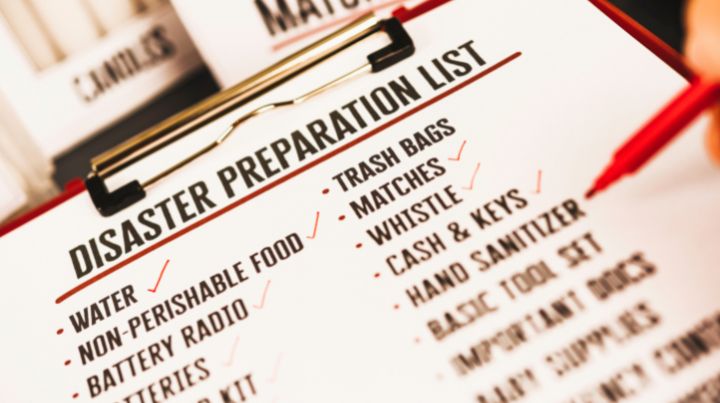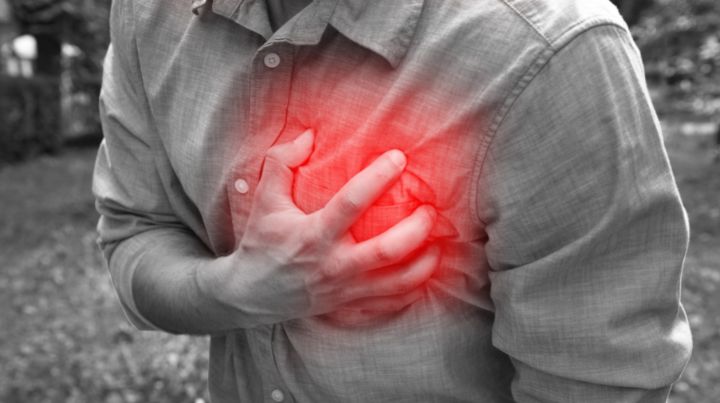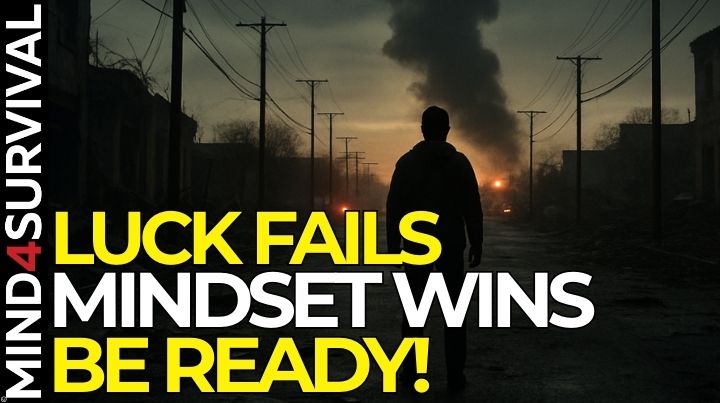How to Manage Stress and Anxiety in Preparedness


Podcast: Play in new window | Download
Managing stress and anxiety is an important preparedness topic that is often overlooked. It's ignored because preparing for future struggles is often rooted in worry about future events. And, that worry causes us to place our preparedness ahead of all else.
However, that's not to say that preparedness is not an excellent course of action to follow. As we all know, accidents, disasters, and bad times happen. When they happen, those who prepare are more likely to be part of the solution rather than part of the problem.
That said, people concerned about future problems can experience the adverse effects of long-term stress and anxiety. Those effects can impact both physical and mental health and, in so doing, decrease a person's ability to overcome difficult situations. In other words, not including efforts to manage stress and anxiety can reduce our overall preparedness capability.

My Battle with Stress, Anxiety, and Worry (Post-Traumatic Stress)
As someone who has served in high-stress environments and faced the challenges of PTS, I understand firsthand the importance of mental resilience. There were times when my anxiety seemed so intense that I came close to taking my life. Fortunately, I found the help I needed, and then, with the right coping strategies, I found ways to manage my stress effectively. So much so that today, I feel more happy and alive than I can ever remember feeling before. So much so that now, I use my experiences to help others who are struggling in the battle with the overwhelm of past trauma.
Stress, Anxiety, and Worry
Worry is defined as anxiety and uncertainty over actual or potential problems. If that doesn't sum up the prepper mindset, including mine, I don't know what does. The bottom line is that worry is something that preparedness-minded people do. If we didn't worry, we wouldn't be as inclined to prepare as many of us do.
On the flip side, people who don't worry are less inclined to prepare. Think about it: how many people have you seen who do not worry about the future and still spend their time and money getting prepped? Typically, people who don't worry about future uncertainties are the people we say have their heads buried in the sand.
Ultimately, because we are concerned with the future, we, the preparedness-minded people of the world, tend to carry more stress. It's that stress that can have an adverse impact on a person's readiness.
The Adverse Effects of Stress and Anxiety

Here's a list of the adverse effects of stress and anxiety on our health and wellness:
Central Nervous System
- Headaches
- Dizziness
- Depression
- Weight gain
Cardiovascular System
- Rapid heart rate
- Palpitations
- Chest pain
- Heart disease
- High blood pressure
- Coronary events
Excretory and Digestive Systems
- Stomachaches
- Nausea
- Diarrhea
- Digestive issues
- Loss of appetite can also occur
- Irritable bowel syndrome (IBS)
Managing Stress and Anxiety in Preparedness
Stress and anxiety are everyday experiences that everyone goes through at some point in their lives. While it is normal to feel stressed or anxious, managing these emotions effectively to avoid their harmful effects on our mental and physical health is essential. Here are some ways to manage stress and anxiety:
- Create a Routine: Establish a daily schedule that includes time for relaxation and self-care.
- Seek support: It is important to consider seeking support from loved ones or a mental health professional if you are experiencing high levels of stress or anxiety. Talking to someone can help to reduce feelings of isolation and provide a sense of perspective.
- Get enough sleep: Lack of sleep can contribute to stress and anxiety. To manage stress and anxiety effectively, it is important to prioritize sleep and aim for 7-9 hours of sleep per night.
- Practice self-care: Self-care involves taking time for yourself to engage in activities that make you feel good. This can include reading, relaxing baths, spending time with loved ones, or engaging in a hobby.
- Exercise: Regular physical activity is a great way to reduce stress and anxiety. Exercise helps to release endorphins, which are natural mood boosters that help to reduce stress and anxiety. Additionally, exercise helps to improve physical health, which in turn can help to reduce stress levels.
- Deep breathing: Deep breathing exercises can help to calm the mind and reduce stress levels. When we feel anxious or stressed, our breathing becomes shallow and rapid, which can exacerbate these feelings. We can slow down our heart rate and reduce our stress and anxiety by taking slow, deep breaths.
- Mindfulness: Mindfulness involves focusing your attention on the present moment without judgment. This practice can help to reduce stress and anxiety by promoting relaxation and helping to reduce negative thoughts and feelings.
- Avoid unhealthy coping mechanisms: Unhealthy coping mechanisms such as alcohol or drug use, overeating, or social isolation can exacerbate feelings of stress and anxiety. It is essential to avoid these behaviors and instead engage in healthy coping mechanisms.
Managing stress and anxiety is essential to maintaining good mental and physical health, which is critical for preparedness. By engaging in healthy coping mechanisms such as exercise, deep breathing, mindfulness meditation, and self-care and avoiding unhealthy coping mechanisms such as alcohol or drug use, you can effectively manage stress and anxiety and be the most effective YOU possible.
And that, my preparedness-minded friends, is preparedness.
Additional Resources
- What is Post Traumatic Stress Disorder (My PTSD Battle)
- Anthrax Survivor! Dr. Nina Cerfolio’s Life Journey
- Coping and Managing Stress with PTSD
- SMART Goal Setting
Stay safe,

Related Articles
FREE Guide
Read the Best Seller
Join Mind4Survival
Stay informed by joining the Mind4Survival! 100% Secure! 0% Spam!
Affiliate Disclosure...
Mind4Survival is a free, reader supported information resource. If you make a purchase through our link, we may, at no cost to your, receive an affiliate commission.
Do You Want To Be Ready No Matter What?

Download our free 39-page guide with interactive, 7-Day Emergency Kit Checklist and take the first step toward real preparedness.
- Know exactly where to start.
- Save time and money.
- How-to build a complete Basic Emergency Kit.
- Level up your safety and security.
Join Mind4Survival
Stay informed by joining the Mind4Survival! 100% Secure! 0% Spam!






